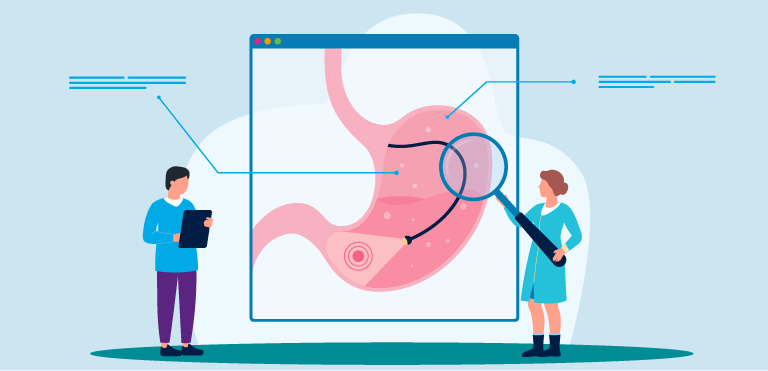
Do you sometimes feel stomach pain? Maybe you feel bloated, have gas, or trouble going to the bathroom. These could be signs of a problem with your digestion. A gastroenterologist can help!
What is a Gastroenterologist?
A gastroenterologist is a doctor who treats stomach problems. This includes:
- Esophagus: The tube that takes food from your mouth to your stomach.
- Stomach: Where food is broken down.
- Small Intestine: Where nutrients from food are absorbed.
- Large Intestine (Colon): Where water is taken out, and waste is formed.
- Liver, Pancreas, and Gallbladder: These organs break down and store nutrients.
If something is wrong, a gastroenterologist can figure out what’s going on and how to treat it.
Why See a Gastroenterologist?
Many people have stomach problems. Gastroenterologists are one of the most common doctors people see. You may need to see one if you have:
- Belly pain that doesn’t go away
- Diarrhea or constipation (trouble going to the bathroom)
- Feeling bloated or gassy
- Heartburn or acid reflux
- Blood in your poop
Talking about these problems may feel awkward, but getting help is important. Many stomach issues have the same symptoms. Your primary care provider* (PCP) can help figure out what’s wrong and refer you to a gastroenterologist if you need one.
Colon Cancer Screening
Gastroenterologists not only treat stomach problems but also help prevent serious issues like colon cancer. If your PCP suggests colon cancer screening, you may be offered an easy test that checks for hidden blood in your poop, which can be an early sign of a problem. If the test finds something not normal, your PCP may suggest a colonoscopy. This is done by a gastroenterologist. They will take a closer look at your colon and make sure you are healthy.
Click here to learn more about colon cancer screening.
How To Make an Appointment
Ask your PCP to see if you need to see a gastroenterologist. Your PCP will fill out a referral (a written order to see a specialist). Please follow the timeline given by your PCP on when to make your first appointment. Here’s what might happen at your visit with a specialist such as gastroenterologists:
- Talk about your symptoms: The specialist will ask you questions about your diet, social and family history.
- Tests: You may need tests, like giving a poop sample or blood tests.
- Treatment: The doctor may suggest diet changes, medicine, or other treatments.
How Your Food Affects Your Gut
What you eat can make big changes in your digestion. Gastroenterologists know that different cultures have different foods and diets. They can help you find a way to eat that is healthy and respects your traditions.
SFHP Has You Covered
If you have SFHP Medi-Cal, you are covered for visits to gastroenterologists and tests when medically needed. This means you can get the care you need without worrying about the cost. Remember, you will need a referral from your PCP to see a specialist.
Don’t Wait, Get Help!
If your stomach is bothering you, talk to your PCP. Your PCP may be able to help you manage your gut problems. They can also refer you to a gastroenterologist if needed. With Medi-Cal, getting care is easy. Your gut will thank you!
*A primary care provider (PCP) is the doctor, physician assistant, or nurse practitioner in charge of your health care.
